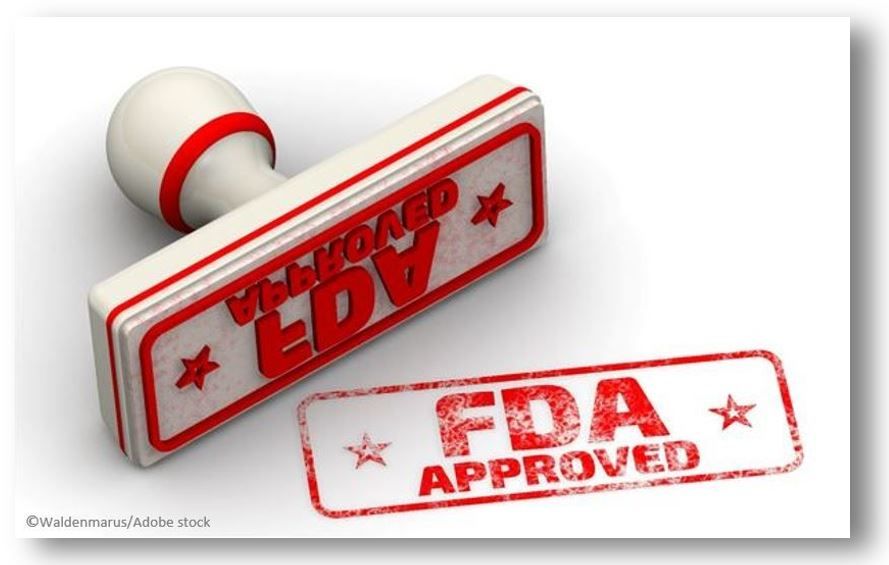- Clinical Technology
- Adult Immunization
- Hepatology
- Pediatric Immunization
- Screening
- Psychiatry
- Allergy
- Women's Health
- Cardiology
- Pediatrics
- Dermatology
- Endocrinology
- Pain Management
- Gastroenterology
- Infectious Disease
- Obesity Medicine
- Rheumatology
- Nephrology
- Neurology
- Pulmonology
FDA Expands Bempedoic Acid Label to Include Primary, Secondary CV Risk Reduction, With or Without Statins
Bempedoic acid is now the only non-statin therapy indicated for primary CVD prevention, with potential to expand treatment access to millions, said Esperion Therapeutics.
©Waldenmarus/stock.adobe.com

The US Food and Drug Administration on March 22, 2024, approved broad label expansions for bempedoic acid (Nexletol) and bempedoic acid with ezetimibe (Nexlizet) tablets to include indications for expanded LDL-C lowering in both primary and secondary prevention of cardiovascular (CV) risk, according to an announcement from manufacturer Esperion.
The expanded indications support use of bempedoic acid alone or in combination with ezetimibe as monotherapy or in combination with statin drugs and include an indication for treatment of primary hyperlipidemia, alone or in addition to statin therapy.
With these expanded indications, the 2 agents, taken orally and once-daily, become the only LDL-C-lowering non-statin agents indicated for primary CVD prevention, the company said. According to Esperion, the label expands the potential patient population for the non-statin agents to approximately 70 million US adults either with or at risk for CVD linked to hyperlipidemia.
“These approvals expand the accessibility of our highly effective drugs to primary prevention patients…” Sheldon Koenig, president and chief executive officer of Esperion said in the announcement. “These approvals also eliminate the statin use requirement, allowing patients to take NEXLETOL or NEXLIZET either with or without a statin, which significantly reduces previously existing prescribing limitations. We are confident these approvals position NEXLETOL and NEXLIZET as the non-statins of first choice within the cardiovascular risk reduction treatment paradigm.”
The widely anticipated—and expected—CV risk reduction indications are based on findings from the CLEAR Outcomes clinical trial that assessed the effects of bempedoic acid on CV outcomes in a cohort of 14 000 participants with, or at high risk of CVD who were statin-intolerant or unwilling to take the medications. Participants were followed for a median of 3.4 years. Investigators reported in the New England Journal of Medicine that bempedoic-acid treated participants experienced relative risk reduction of:
- 15% for MACE-3 (death from CV cause, nonfatal stroke, or nonfatal MI)
- 27% for nonfatal MI
- 19% for coronary revascularization
- 39% for MACE-3 in primary prevention participants
Researchers also reported reductions in LDL-C of 20% and in hsCRP of 22%; further, there was no elevation of glucose observed in participants who received bempedoic acid vs those who received placebo, Esperion stated.
Results of a prespecified analysis of CLEAR Outcomes published in January 2024 that assessed the impact of bempedoic acid vs placebo on the total incidence of CV events during the study showed treatment with the drug was associated with relative risk reductions of 20% for 4-point MACE, 17% for 3-point MACE, 31% for MI, and 22% for coronary revascularization.
“NEXLETOL and NEXLIZET are once-daily, accessible, oral medications that reduce LDL-C and cardiovascular risk, but without the side effects most common to statins. NEXLETOL and NEXLIZET are also the first oral non-statin LDL-C lowering drugs to be approved by the FDA to reduce the risk of CV events in both primary and secondary prevention patients. We believe this significantly differentiated profile is a game changer for patients and healthcare providers alike…,” Koenig said.
Brief history
Bempedoic acid was originally approved by the FDA in February 2020 as add-on therapy to maximally tolerated statin therapy for the treatment of heterozygous familial hypercholesterolemia or established atherosclerotic cardiovascular disease. At the time, the label also stated that the effect of bempedoic acid on CV morbidity and mortality had not been determined.
The first label expansion in December 2023 updated the indication to include treatment of primary hyperlipidemia in eligible individuals as a qualifier for existing approved populations. Importantly language was removed from the label that stipulated maximally tolerated statin therapy as prerequisite for treatment with bempedoic acid as was the limitation of use that stated the undetermined effect on CV morbidity and mortality.
Source: US FDA approves broad new labels for Nexletol and Nexlizet to prevent heart attacks and cardiovascular procedures in both primary and secondary prevention patients, regardless of statin use. News release. Esperion Therapeutics. March 22, 2024. Accessed March 24, 2024. https://www.esperion.com/news-releases/news-release-details/us-fda-approves-broad-new-labels-nexletolr-and-nexlizetr-prevent

